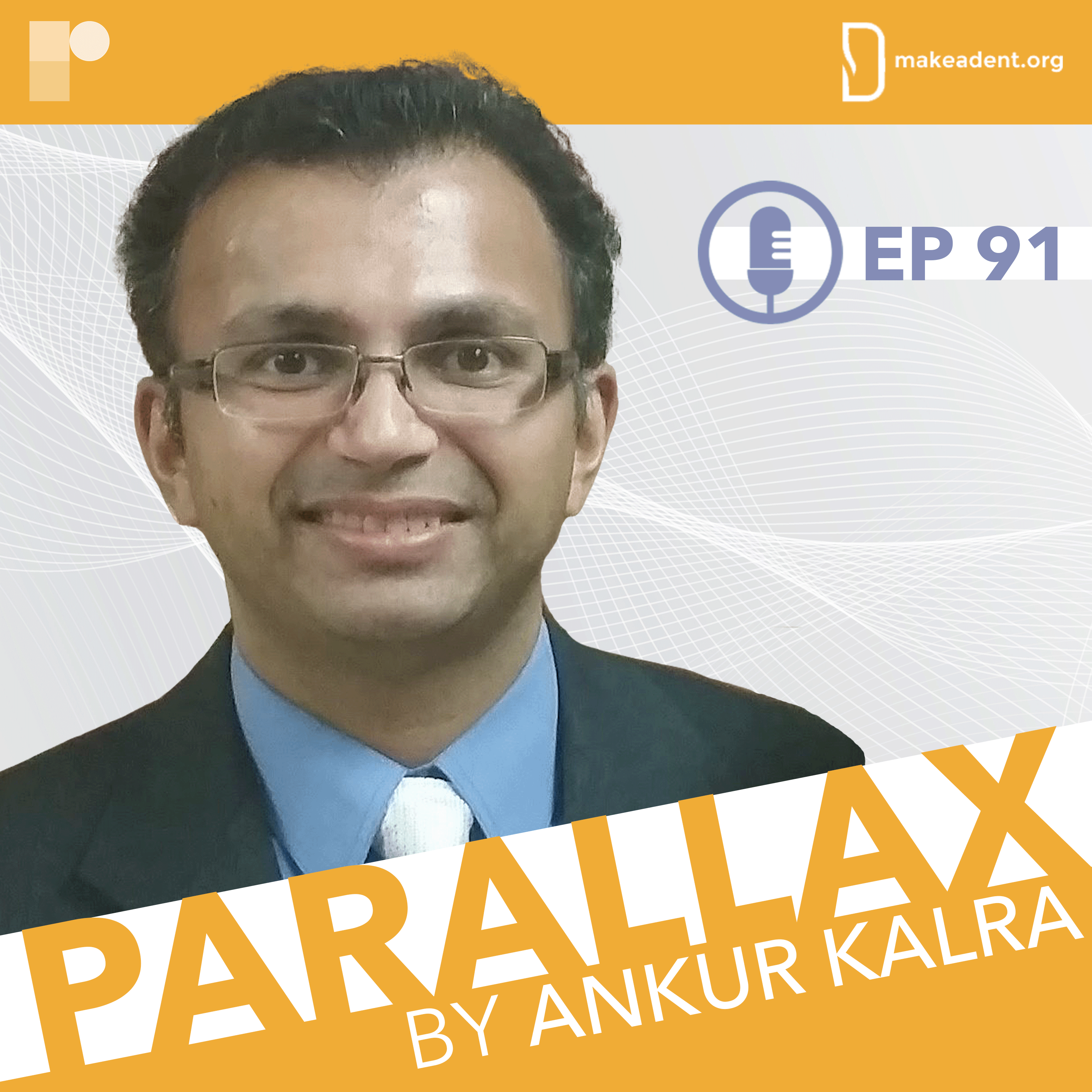
In the second part of our mini-series exploring the concept of value in academic medicine, Dr Ankur Kalra once again engages in a compelling discussion with Dr Nandan Anavekar. Dr Anavekar, a Professor of Medicine at Mayo Clinic College of Medicine and consultant for both the Cardiovascular and Radiology Departments at Mayo Clinic, also serves as the Program Director for the Adult Cardiovascular Diseases Fellowship program.
In this stimulating and thought-provoking episode, Dr Kalra and Dr Anavekar delve into the topic of measuring success in medicine. Dr Anavekar puts forward the argument that the ambiguous definition of academic achievement often results in damaging biases that have long-term repercussions on the medical field. As a program director, Dr Anavekar believes that the number of published articles should not be the only or most crucial criterion for evaluating early-career faculty. He argues that it's important to also consider the "distance travelled" by candidates.
Dr Kalra raises pertinent questions about the practical implications of this approach, and Dr Anavekar provides candid insights into his responsibilities. The conversation also sheds light on the "publish or perish" mentality and highlights the need to prioritize patient needs over the ideals of the experts treating them.
Can we move beyond binary thinking when it comes to measuring success in medicine? How does Dr Anavekar tackle research questions? What is the true essence of being "academic"?
Questions and comments can be sent to “podcast@radcliffe-group.com” and may be answered by Ankur in the next episode.
Guest: @nandananavekar, host: @AnkurKalraMD and produced by: @RadcliffeCARDIO.

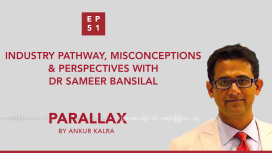
Dr. Bansilal was an Assistant Professor of Medicine at the Icahn School of Medicine at Mount Sinai when he decided to seek an alternative pathway to make an impact on patients’ lives.
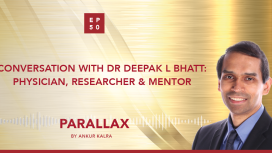
In the 50th episode of Parallax, Dr. Ankur Kalra’s guest is Dr. Deepak L. Bhatt leading physician, researcher, lecturer, and educator who has authored or co-authored over 1650 publications and was recipient of the ACC’s Distinguished Mentor Award in 2018 and AHA’s Distinguished Scientist Award in 2019.
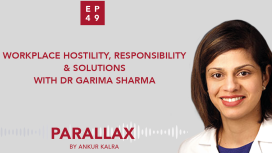
The American College of Cardiology surveyed cardiologists across the globe to have a more detailed understanding on the impact of hostility, discrimination, and harassment in the workplace. Of almost 6000 cardiologists who took part in the survey 44% reported hostile work environment.
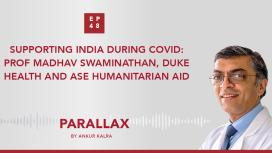
In this week's latest podcast episode, host, Ankur Kalra, MD, meets guest Prof Madhav Swaminathan (Duke University Health System, NC, US) to discuss how he has orchestrated a major humanitarian effort, in association with Duke University Health and The American Society of Echocardiography, to supply ventilation equipment and PPE to hospitals and NGOs during the current COVID-19 crisis in New Delhi, India.
Hear them discuss the challenges and learnings associated with the supply chain, inventory, logistics and cost to deliver this humanitarian effort; which most recently resulted in $140,000 of life-changing equipment being delivered to four key hospitals in New Delhi. A most inspirational episode.
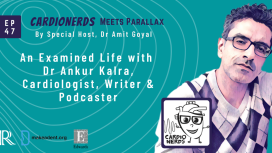
In this candid and spiritual conversation Amit and Ankur take a journey through former episodes of Parallax and Ankur’s writings to explore what it takes to strive for a deeper knowledge of ourselves; or, as Ankur puts it, dharma, the inherent order of reality.

Parallax’s guest this week is Dr Eric David Adler, Medical director of heart transplant and mechanical circulatory support at UC San Diego Health.

How did Dr Gragossian receive her diagnosis? How does she feel about her new reality? What drives her? What is her message to our listeners?

Just after 9/11, Heval, the 18-year-old Syrian Kurdish refugee found a job as a dishwasher. At this point, he was the sole provider of his family. The pressure that comes from being poor did not leave him for many years. Today, he is firm believer in giving back to underserved communities by spreading awareness within the medical community. As he says, well-meaning people of privilege are sometimes afraid to act. What we need is more people to bridge the gap and find ways to help each other.

What drives Dr Nishtha Sodhi? What were the formative moments of Dr Sodhi’s career? What are the new frontiers of cardiology?







